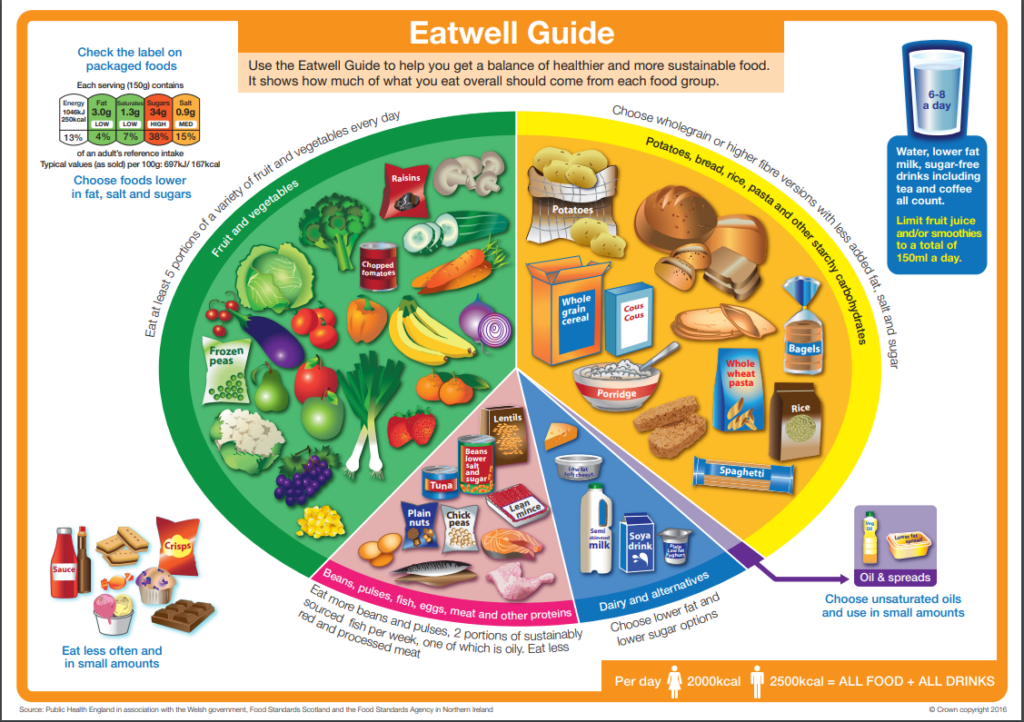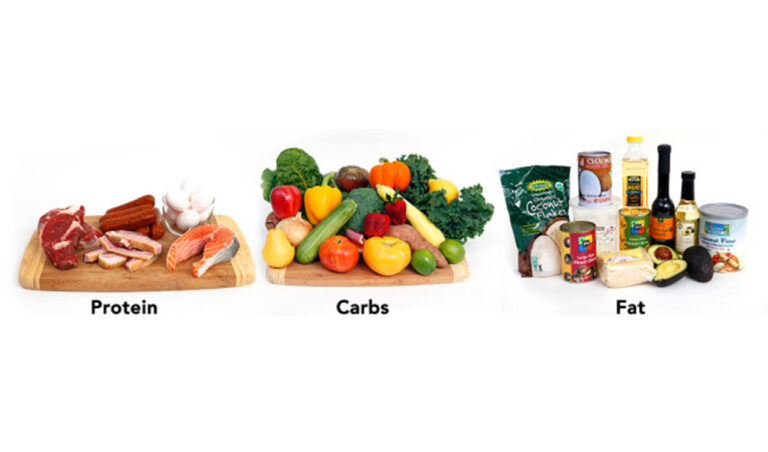Now you know how which weight category and how many calories you need to eat (See Previous article). Lets look at food choices. We all know what we shouldn’t be consuming, cakes, chocolate, fried food, crisp, sugary drinks etc. But what should we be eating to not only produce weight loss but minimize the suffering that a diet designed for weight loss causes.
I have to say I do not like fad diets such as a juice diet or any diet where you only eat 1 thing. Those diets are never designed for longer than a few weeks for a reason. They are not sustainable and because of this are not going to produce the long term resulted needed. They also teach you absolutely nothing about how to eat healthily. They just give some quick short-term results and nothing more. Let’s say you’re 30Ibs over weight (just over 2 stone). We know from the previous article that it takes a deficit of 500kcal per day to lose 1Ib per week. This is 3500kcal per week. If we multiply 3500 by 30 we get 105,000kcal to burn your way through. A Juice diet will never be able to burn through that number in a healthy way. You would have to stay on it so long it would impact your health and you would feel terrible.
What would I recommend then? A healthy balanced diet that you can sustain for a long time. In my example above (30 weeks). Which is over 7 months of eating in a caloric deficit, you have to find a way to make your diet sustainable. The eat well guide is a good place to start…

There is good info on the NHS website found here: https://www.nhs.uk/live-well/eat-well/the-eatwell-guide/
This guide is non-specific and is made as a one size fits all guide. So how do you find out what’s right to eat for you?

What Are Macronutrients?
Macronutrients are molecules that our bodies use to create energy for themselves. You can find them listed on the nutrition facts panel of most foods, or by using calorie counting apps and calculators. Primarily fat, protein and carbs. They are found in all foods in varying amounts, measured in grams (g) on the nutrition labels.
Fat provides 9 calories per gram
Protein provides 4 calories per gram
Carbohydrates provide 4 calories per gram

Protein:
If your active and exercising regularly protein is going to be important for recovery. You should try to aim for 1g of protein for 1Ib of bodyweight. Lean meats such as chicken, fish, leans cuts of red meat are the best option for this purpose. Processed meat is not recommended.
Carbohydrates:
Carbs selection is very important to get right for you. We are all different and absorb them at different rates. Low glycemic index carbs are the ones to eat. They absorb slowly and keep you from feeling hungry or tired. My advice would be to eat all the usual carb sources such as pasta, rice, potatoes, oats, etc and see how they affect you. What I mean by this is, are you hungry within an hour after eating them? If you are this is not the carb for you. Its best to eat carbs that keep you from feeling hungry the longest. This should also insure that feeling tired is kept to a minimum and will make it easier to stay in a caloric deficit for as long as you need to. I probably don’t have to say this, but sugar is the worst carb. It absorbs very quickly in the body. So fast in fact unless your exercising the body cannot use it. Any that is not used the body stores as fat.
Fats:
Fats are very important and are used in a lot of bodily functions. They are also very calorific and because of this need to be eaten in sensible amounts. This is generally accepted as no more than 30% of your total calories.
Saturated fats are mostly solid at room temperature and considered bad fats which can raise LDL. Which is bad considered bad cholesterol and should be kept to a minimum. The main source for this type of fat is in animal fat and cheese.
Good fats are generally Polyunsaturated and Monounsaturated. Both fats are usually liquid at room temperature. They help to raise HDL, which is good cholesterol. They both help to raise Omega-3 and 6. Olive oil is high in monounsaturated fat. Corn oil is high in Polyunsaturated fat.




